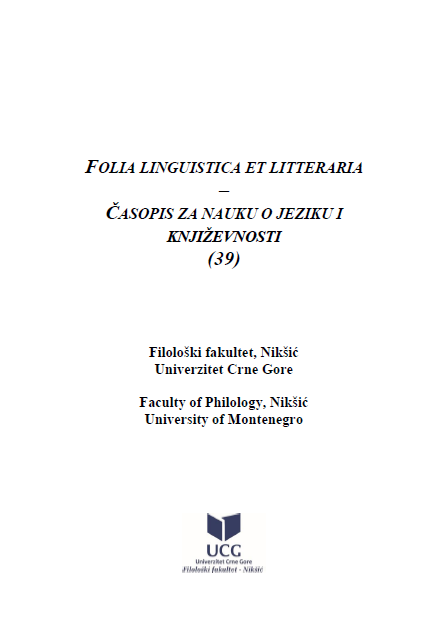FOTOGRAFSKI APARAT BEZ DUŠE: PERCEPCIJA ITALIJANSKOG FUTURIZMA U RANOJ KINESKOJ MODERNISTIČKOJ POEZIJI
A SOULLESS CAMERA: THE PERCEPTION OF ITALIAN FUTURISM IN EARLY CHINESE MODERNIST POETRY
Author(s): Zoran SkrobanovićSubject(s): Comparative Study of Literature, Other Language Literature, Italian literature
Published by: Filološki fakultet, Nikšić
Keywords: Modernism; China; futurism; poetry; poetics
Summary/Abstract: Considering the fact that there are certain similarities between the cultural endeavours of the early Chinese modernists and Italian futurists, at first glance, it seems strange that futurist ideas mostly failed to take root in Chinese literary modernism. From the outset, Chinese literary modernism was a heterogeneous movement, but the common denominator in these different movements in post-dynastic China was a radical antitraditionalism that bears similarities to the goals of Italian futurism that was often called the down-with-the-past movement (antipassatismo). Contemporary literary studies usually recognize three distinct waves of Chinese modernism: the first wave refers to the new literary scene in China’s Republican era (1911-1949), but due to the eclecticism of early Chinese modernists who were deriving inspiration and ideas from a broad and diverse range of sources, this initial stage of Chinese modernism includes the authors whose work was inspired by the pre-modern Western movements such as romanticism, symbolism etc. The second wave of Chinese modernism emerged on Taiwan in the 1950s, and the final wave brought modernism back to mainland China at the end of the 1970s. This paper attempts to examine the reception of Italian futurism in early Chinese modernist literature, therefore our research is chronologically focused on the first wave of Chinese modernism.
Journal: Folia Linguistica et Litteraria
- Issue Year: 2021
- Issue No: 39
- Page Range: 85-103
- Page Count: 19
- Language: Serbian

